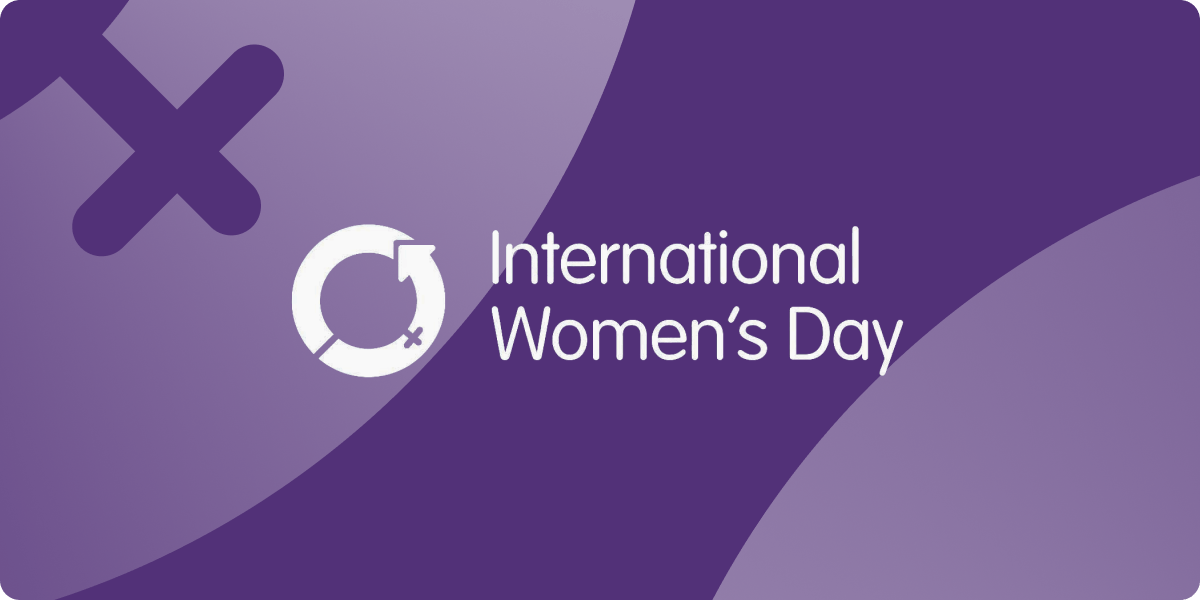International Women’s Day
ESG· 3min March 8, 2023
Women’s History Month is celebrated across the month of March, with International Women’s Day falling on the 8th of March. The theme chosen for International Women’s Day this year is one that both celebrates women and draws attention to issues that are impacting women across the world. For 2023, that theme is “Embrace Equity”.

Equity vs equality
Many of us use the words equity and equality interchangeably, but the meaning of the words actually differs. As a reader, the word equality is one you’re probably more familiar with and what most people view as ensuring everybody has an equal opportunity and is not treated differently or discriminated against because of their characteristics.
Equity on the other hand is defined as “fair treatment, access and advancement for everyone.” More specifically, it refers to fairness and justice. While residing in the same space as equality, equity differs in some subtle ways. Equity takes into consideration the context and unique circumstances of each individual and demands that treatment and access be adjusted accordingly.
Activist DeRay McKesson describes the distinction perfectly: “The difference between equity and equality is that equality is when everyone gets the same thing, and equity is when everyone gets the things they deserve.”
Why isn’t equality enough?
So why isn’t equality enough? Equality has historically been a very important aspect of working life and has been the basis for various movements and pieces of legislation including gender pay gap reporting and the Equality Act of 2010 in the UK. But the problem with only considering equality is that not everyone has the same starting point.
Equity, on the other handrecognises that not everyone is starting at the same level. There are great disparities between what different parts of the population and the workforce have access to.
And so, this year’s International Women’s Day theme is looking to tackle equity-based solutions rather than those that are equality-based.
What does that mean in the workplace?
Well, for us at Form3, it means learning and understanding best practice from organisations who are passionate about doing better and being better!
In the spirit of sharing knowledge, here are some ways to get started:
Evaluate your company:
You don’t know where to go unless you know where you’re starting. A comprehensive audit of your policies, practices and processes is a great place to start. Look at things like hiring policies, pay equity, time off policies, and flexible working. You may also want to survey your team to get their thoughts directly (anonymously of course) or even launch working groups.
Set OKRs around ESG and share progress:
Identify your limitations, then build an action plan to address them. Accountability is an important element, so keep your team up to date on the goals you’ve set and how close you are to achieving them, this will keep you on track. We don’t want ESG to sit behind the scenes at Form3 so we have dedicated ESG OKRs and KPIs at the company level. We also publish our ESG report annually. This really helps us to be accountable, it informs our team of what we’re doing well and where we have room for improvements.
Measuring and publishing your gender pay gap early:
We recommend calculating and understanding your gender pay gap data as soon as possible, certainly before you are legally required to do so. To embrace our value of transparency, we calculated and published our gender pay gap data to show how pay differs from men and women at Form3. We were delighted to see no gap on a role-by-role basis, but we have identified a 23% gender pay gap across the business. Equipped with this data, we’ve implemented measures to reduce the gap and have set ourselves KPIs ensuring we meet this.
Create a network:
Creating networks within the workplace help individuals to feel connected with their peers. In 2022, we launched our first ‘Women Who Form3’ community, the aim of the group is to build a community of individuals who identify as women across Form3 to develop professional knowledge, grow valuable peer connections, and share career advice, leading to meaningful change in the industry.
Address gaps in knowledge:
We believe in the importance of creating and sharing training materials on diversity, equity, inclusion & belonging as it helps to increase awareness of the challenges facing others. Our latest in-house unconscious bias training explains the different types of bias, how it can impact us at Form3 and what can be done to unlearn these behaviours. We have also recently enjoyed sharing book recommendations on DEI&B (Diversity, Equity, Inclusion and Belonging) related topics that can be found on our book subscription provider, Perlego. This helps to engage team members through the media they already use daily.
Ensure inclusivity is at the centre of what you do:
People with health conditions and disabilities are often left out of conversations around equity and inclusion, but they represent a considerable percentage of the workforce. Going above and beyond the legal requirements and supporting your employees who may be disabled, neurodivergent or chronically ill means that people who identify as such don’t miss out on the opportunity to be part of your team. Things to consider here would be setting up a working group of colleagues passionate about making change in this area and working with external organisations to offer opportunities within your business to those with disabilities. We are making some exciting steps in this space which we’ll be delighted to share with you soon.









 Back to Blog
Back to Blog

